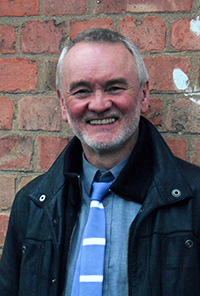In 2016 the political Left in Britain is in disarray. Large numbers of people on the Left and in The Labour Party believe that it is impossible Jeremy Corbyn could be elected as British Prime Minister. Yet the Labour Party has resoundingly re-elected Corbyn as leader. Aside from the convictions of activists, it would be fair to say that the British people are deeply ambivalent about socialism (in whichever way that is defined).
No British Government has ever achieved a wholescale redistribution of wealth, and indeed over the last 25 years we have seen a steady process of the rich getting relatively richer and the poor poorer. What about the original idea from Marx that the entire means of production, distribution, and exchange should be owned by the state? That, I suggest, simply appears laughable, impracticable or absurd to the British electorate.
The author who seems to embody all the perplexities about what socialism is, and whether it could be achieved in Britain is George Orwell. Robert Colls of De Montford University, Leicester (http://www.dmu.ac.uk/about-dmu/academic-staff/art-design-humanities/robert-colls/robert-colls.aspx) has given us the best recent biography, and it is a story which brings out Orwell’s essential Englishness. The author of Homage to Catalonia is familiar to us as the swashbuckling socialist, heading off to Spain to fight the fascists. He is the public intellectual, inveighing against Stalinist tyranny. But the English Orwell – the self-professed ‘lower upper middle-class’ Old Etonian, tending the aspidistra in the thin light of a Hampstead drawing room — is more difficult to picture.
There are, of course, different kinds of ‘Englishness’, and one way of understanding the trajectory of Orwell’s career is as a quest to find one that he could bring himself to believe in. That’s the thesis of Robert Colls’s biography, which examines how Orwell’s sense of England was forged as a schoolboy on the playing fields of Eton, as a police officer in the Burmese jungle, and, in the 1930s, as a writer investigating the Wigan coal mines. There he encountered working-class traditions and a sense of community that constituted an Englishness he could learn to love and passionately defend – even if he was unable to understand it fully .
Colls’s book is both authoritative and highly readable. The author writes with the skill, articulacy and humour of Isaiah Berlin and Clive James combined. His lucid interpretation of Orwell’s life and work makes sense of his various contradictions. He was ‘an intellectual who did not like intellectuals, a socialist who did not trust the state, a writer of the left who found it easier to forgive writers of the right, a liberal who was against free markets, a Protestant who did not believe in God even if he believed in religion, and a dissenter who believed in Dissent even if it was only to enjoy the right to dissent from it.’ That was being ‘conflicted’ before the term was invented! What a guy!
Listen to a discussion about George Orwell and ‘Animal Farm’ on an edition of BBC Radio 4’s ‘In Our Time’ programme from 2016 here http://www.bbc.co.uk/programmes/b07wgkz4.
Enquire at your local library or consult https://www.amazon.co.uk/gp/product/0199680809/ref=s9_simh_gw_g14_i1_r?ie=UTF8&fpl=fresh&pf_rd_m=A3P5ROKL5A1OLE&pf_rd_s=&pf_rd_r=0Y5Y272RY2ADVWJWFYQ3&pf_rd_t=36701&pf_rd_p=16f14aeb-bd11-4e9e-8c26-9ca0139074ee&pf_rd_i=desktop for further bibliographic detail.
253 pages in Oxford University Press
First published 2013
ISBN 978-0199680801

Professor Robert Colls


